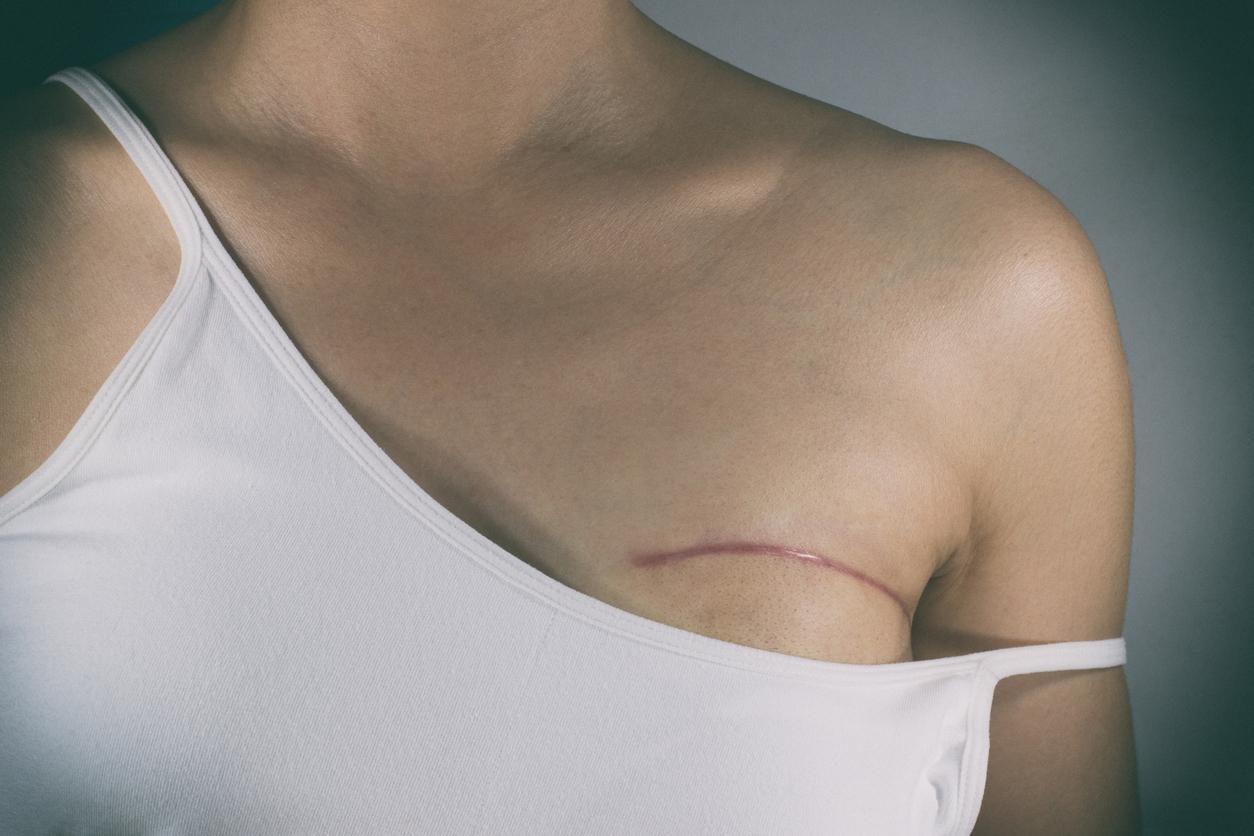According to a study by the University of California, more and more women today are refusing breast reconstruction after a mastectomy and are satisfied with their choice. However, they say they have encountered incomprehension, even refusal from the medical profession.

- The study of 931 women who underwent mastectomy without breast reconstruction reveals that 72% of them are satisfied with their choice.
- While for some it is to facilitate their recovery, many have refused reconstruction because they are satisfied with the appearance of their flat chest wall.
- Many (22%) are also those who face refusal from their surgeon, who intentionally leaves excess skin in case they change their mind.
An integral part of the management of breast cancer, breast reconstruction is no longer a must for women who have had non-conservative breast surgery following breast cancer.
This is highlighted by a new study conducted by researchers at the Jonsson Comprehensive Cancer Center at the University of California at Los Angeles (UCLA) and published in the Journal Annals of Surgical Oncology.
A desired “flattening” for 7 out of 10 women
In France, 20,000 mastectomies are performed each year in France and, among these patients, 25% choose breast reconstruction (13% post-ablation and 12% the following year).
If the breast implant is often presented as a solution to “physically reconstruct” and compensate for the loss of a breast, more and more women who have had a mastectomy are now deciding to do without it.
The study authors interviewed 931 women who had undergone unilateral or bilateral mastectomy without reconstruction. Their objective: to assess the motivations for renouncing the intervention, as well as to measure whether the surgeons provided them with adequate information and support.
First observation: 74% of the women questioned said they were satisfied not to have performed breast reconstruction. However, 22% of respondents also said they had been met with a “categorical refusal” from the surgeon. “That is, the procedure was not originally proposed, the surgeon did not support the patient’s decision, or he intentionally left extra skin in case the patient change your mind”write the researchers.
“To undergo a mastectomy with or without reconstruction is often a very personal choice, says Dr. Deanna Attai, assistant professor of clinical surgery at UCLA’s David Geffen School of Medicine, and lead author of the study. We found that for a subset of women, ‘flattening’ is a desired and intentional option, which should be supported by the treatment team and should not imply that women opting out of reconstruction are not concerned not about their post-op appearance.”
A choice to respect
The researchers also wanted to understand the reasons for refusing reconstruction: the desire for the fastest possible recovery, the refusal to place a foreign body inside them and the certainty that reconstruction was not essential for their body image. are the three answers that were given the most.
The researchers found that a majority of patients who chose not to have surgery were actually satisfied with the outcome of the operation. However, 27% also said they were unhappy with the appearance of their chest wall.
“Some patients have been told that the excess skin was intentionally left – despite preoperative agreement to perform a flat chest wall closure – to be used in future reconstruction, in case the patient changes her mind. says Dr. Attai. We were surprised that some women had to fight to get the surgery they wanted.”
According to her, surgeons “may be hesitant to recommend mastectomy without reconstructive surgery because they are less confident that they can provide a cosmetically acceptable outcome for patients who desire a flat chest wall”.
“We hope that the results of this study will serve to inform general surgeons and breast surgeons that flat laying is a valid option for patients, and that it should be offered as such. We also hope that results may help inform patients that flattening is an option, and enable them to seek out surgeons who offer this option and respect their decision.”concludes the researcher.

.

















